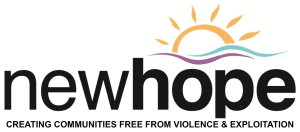If Someone You Know Has Been Sexually Assaulted
It is never easy to learn that someone you know/love has experienced sexual violence. Below is some information for both parents and friends who are concerned about the sexual violence survivors in their lives.
I Am A Parent of a Sexual Assault Survivor
Any crisis in a family brings with it a process of grief and healing. In some ways, a sexual assault is like any other crisis, and in some ways it is different.
If your child has been sexually assaulted, you may be concerned about:
- How to talk with your child about what has happened. Talking about sex is never easy, and talking with your child about sex, no matter what their age, is complex. You may also find yourself having complicated or judgmental feelings about your child’s actions. It may be helpful to get some guidance around how to talk with your child about their assault.
- Keeping your child safe. Most parents believe it is their job to keep their child safe. When a child is hurt, most of us feel that responsibility keenly. Parents have a range of reactions when their child is assaulted – even if that child is now an adult. One parent might want to immediately pull their child out of school where another parent feels unsure of the accusation of abuse.
- Your feelings about the perpetrator. The younger your child is, the more likely it is that you know the offender. It could be a trusted person such as a teacher or coach, a beloved family member, another child or teen, or someone your child is dating. The better you know the offender, the harder it can be to make decisions that are in the best interest of both you and your child. Finding someone who can support you and listen can help.
- Whether your child is making a false accusation. It is rare for a child to make up an accusation. Children do sometimes tell different stories to different people. This can be because they are confused or scared about how the person they are telling will react. It is important for you to be supportive of your child as they disclose their experience.
- How this crisis affects your other children. When a child is sexually assaulted or abused, it affects the whole family. You may find yourself feeling overprotective of other children. You may struggle with how to explain your child’s emotional distress- and yours – to your other children. You may feel overwhelmed with caring for your child in crisis and neglectful of other children. Again, it may be helpful to seek the assistance of someone who can support you through this proces Save & Exit s.
- Your own history of trauma. If you have a history of sexual violence, this may trigger your own history and create a lot of stress. Remember that you are as deserving of help for what you are going through as your child is for his/hers.
The best way to care for your child is to also care for yourself. You will need your own sources of support – friends, family members, or community services – to help you with your child’s and your family’s recovery from sexual violence.
Additional Information:
BARCC: Help a Friend or Family Member
NCTSN: What Parents Need to Know About Sexual Abuse
I Am a Friend of a Sexual Assault Survivor
Seeing someone you care about in pain is difficult. The following five ideas are ways that you can help the survivor in your life get through a very tough time.
- You can listen. Listening is one of the most important ways you can support a survivor of sexual assault. Some survivors will want to talk right away, and others will need some time. Let the person you care about know that you will be ready when (s)he is, and don’t be hurt if they don’t want to talk to you right away. When they are ready, let them talk while you simply listen.
- You can believe. Survivors of sexual assault often worry that they will not be believed. If someone wants to talk with you about something as personal as sexual assault, it means they trust you. Try not to ask questions that sound like you don’t believe the story. In fact, tell the survivor directly, “I believe you” When a survivor feels believed, you have helped the healing.
- You can let them make choices. Sexual assault takes away a person’s power and feeling of control. Respecting a survivor’s choices helps them get the power back. You can help get information and understand options, but a survivor needs to make his/her own decisions. You can empower the person you care about by supporting their decisions, even if you may not agree with them.
- You can get informed. Learn more about survivors’ common reactions to an assault (guilt, fear, avoidance, anger, mood swings, distrust, loss of control, numbness, re-experiencing). The more you understand about what (s)he may be going through, the more you can support the survivor.
- You can take care of yourself. You are an important person in the survivor’s life if they chose to tell you about their assault. If you take care of yourself and the feelings that you are having, you will be more ready to support them.
Additional Information:
BARCC: Get Help for Someone
RAINN: Help a Loved One
Brown University Health Education: Helping a Friend who has been Sexually Assaulted
Brown University Health Education: Male Survivors
If you have questions on how to help a friend or family member who has been sexually assaulted, you can also call our Toll-Free, 24-Hour Hotline at 800-323-HOPE (4673).
